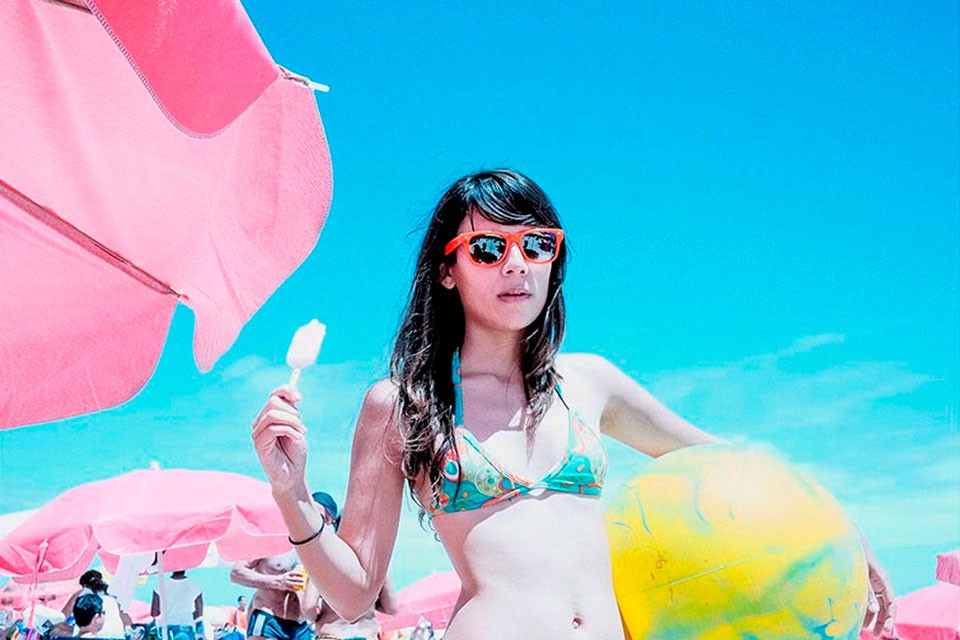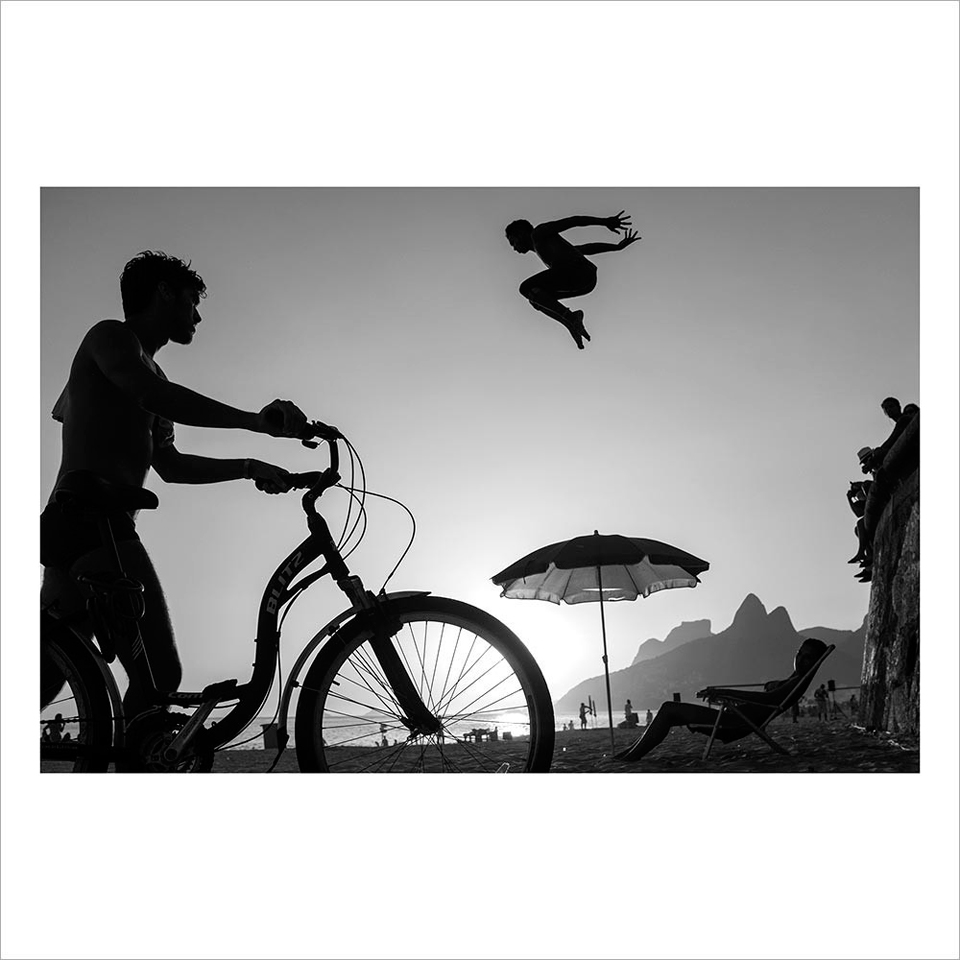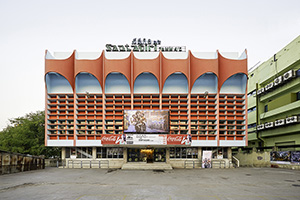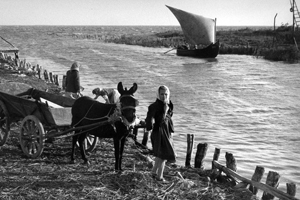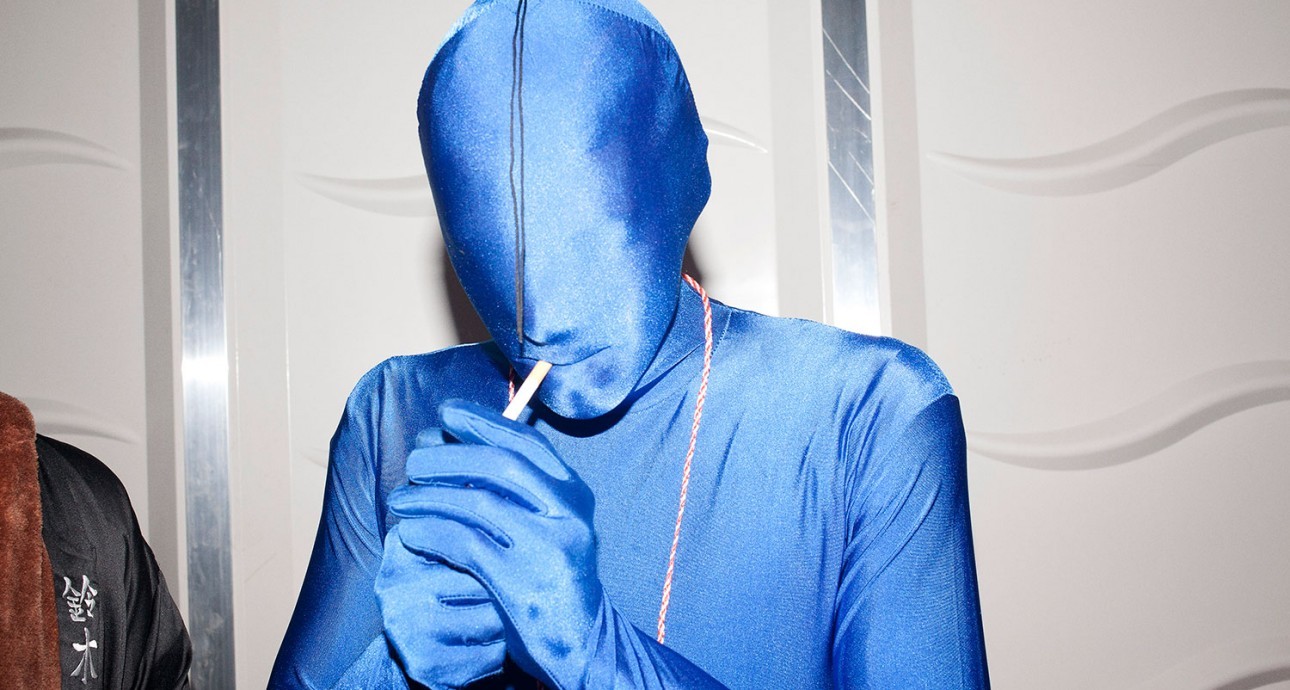
Olivia Arthur: I Want People to See My Experience. But Not to Judge Them.
We know everything about Magnum Photos legends by now — they represent the epoch, which has ended, but will be interesting for the world for a long time to come. However, the 'fresh blood' of the agency creates a new image for it. Photographer Olivia Arthur works calmly and thoughtfully, the main themes in her series are not the the bitter conflicts, but the deep cultural differences between the West and the East. A Bird in Flight reporter met Olivia at the Paris Photo Festival, and talked to her about her time in India, working in closed Eastern societies and why she needs her own gallery.
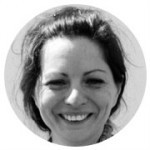
London-based documentary photographer, member of Magnum Photos. The author of Jeddah Diary (2012), Stranger (2015). Her works are part of collections in galleries in the UK, the USA, Germany and Switzerland. Arthur’s long-term work in India is supported by the Jean-Luc Lagardere Foundation.
Why did you decide to go to India? A person must have a reason to leave everything behind and go somewhere.
I studied in the UK. I had the opportunity to go to India to see my family. It was a really good opportunity for me to go and do photography somewhere else. I’ve just decided that the best thing I can do is neither to be in London nor to compete with other photographers. Plus I guess, I wanted to go out somewhere. You know, the funny thing is that before I decided to go to India, I had a job at a magazine in Moscow. I’ve never been to Russia though, I do not speak Russian.
But you would like to work there.
No, it was not really a job. I had a friend who studied Russian at the same university that I was in. And he was working with a Moscow-based English-language magazine. And for the photographer it was not a lot of money, just to do a few things. I received about 300 pounds a month. It is enough to maybe get an apartment. And then I find a way to make the rest of the money. And then just before I was getting ready to go, the magazine folded. So I was like “I really want to get out of London”. And then the India opportunity came along, and I decided to go to India.
And what were you doing there?
I had just left college and I had no experience. The Guardian gave me some little job. And the money I got from there was enough to keep me going.
You know, it’s cheap to live in India. If I got a good job with one of the lead newspapers, I would take the money, and get on the train, and go get the story.
And then you decided to make a big story. You are covering serious issues, like women’s rights in the East, but your images are so calm for me, they have no drama.
I think that is my way of understanding a situation. It wasn’t necessarily the intention. I started photographing with my camera, and I found myself much more comfortable, I was working much slower and more thoughtfully. I did not want to do the drama. I was looking for the things that I found looking most normal that everybody could be related with. So I know if I photograph in very exotic places, I am always looking for the things that are not the most exotic or exciting things about those places.
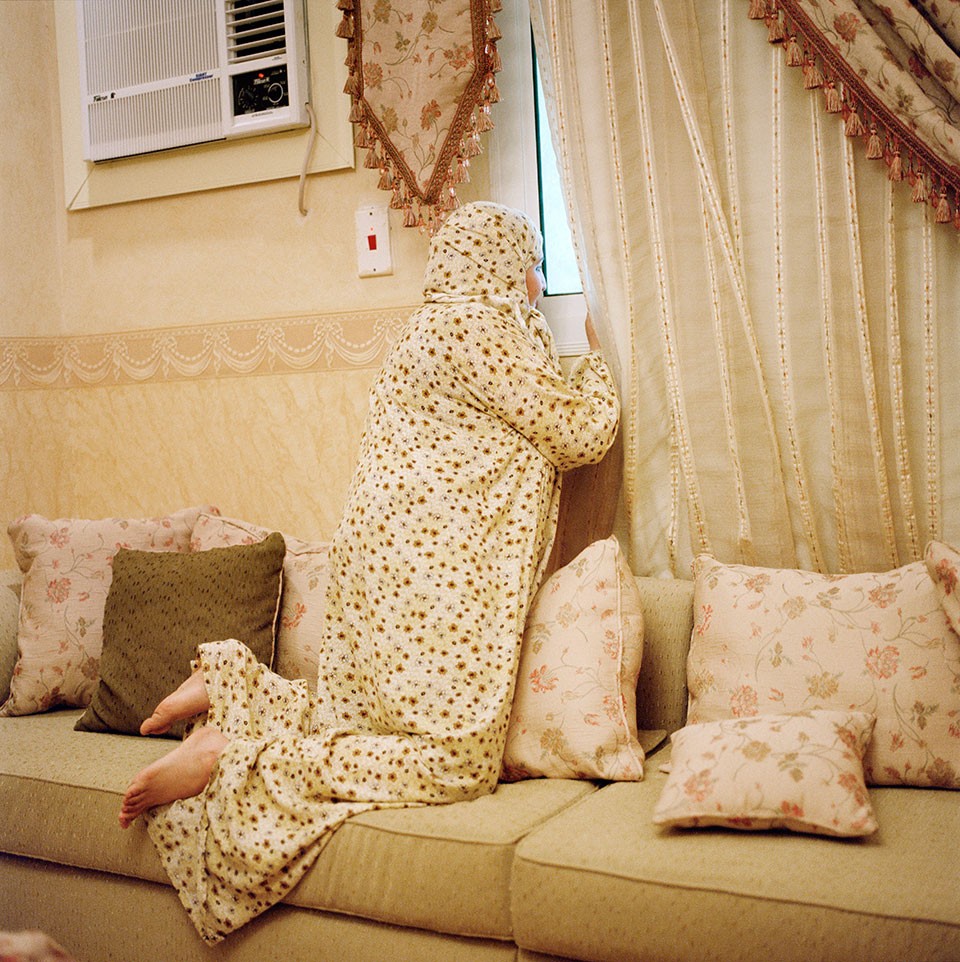
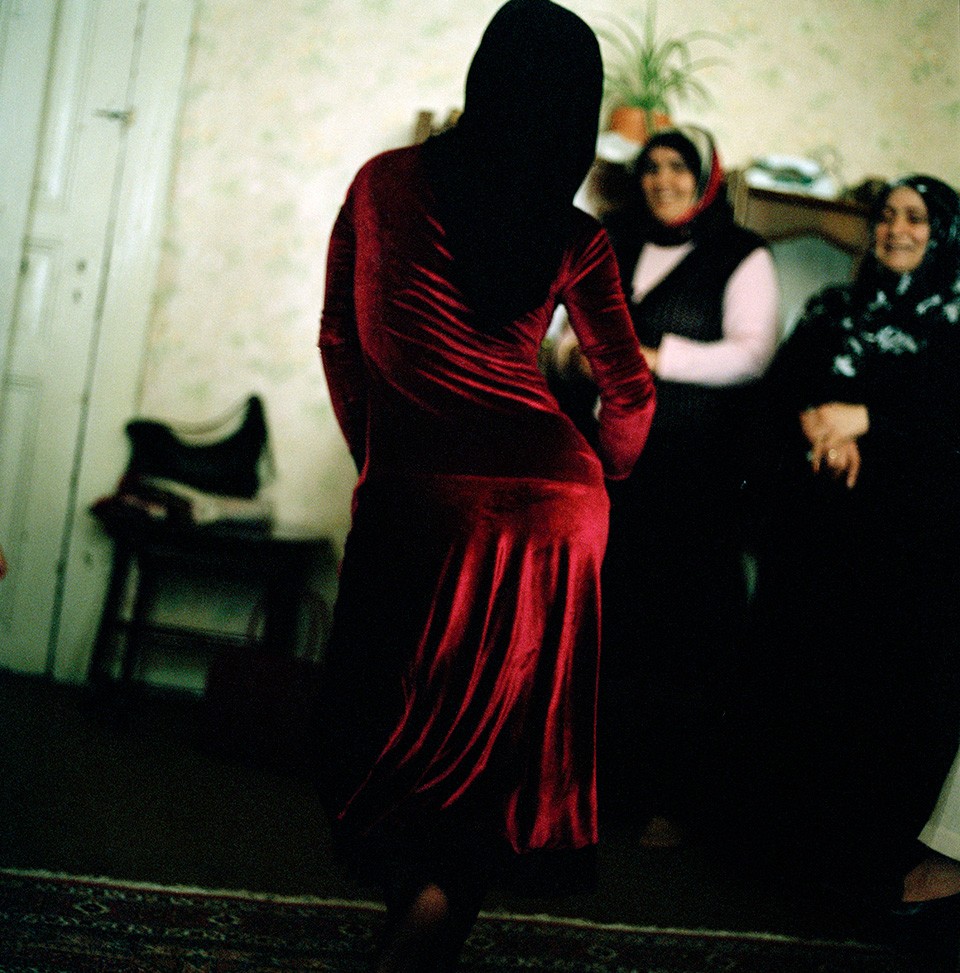
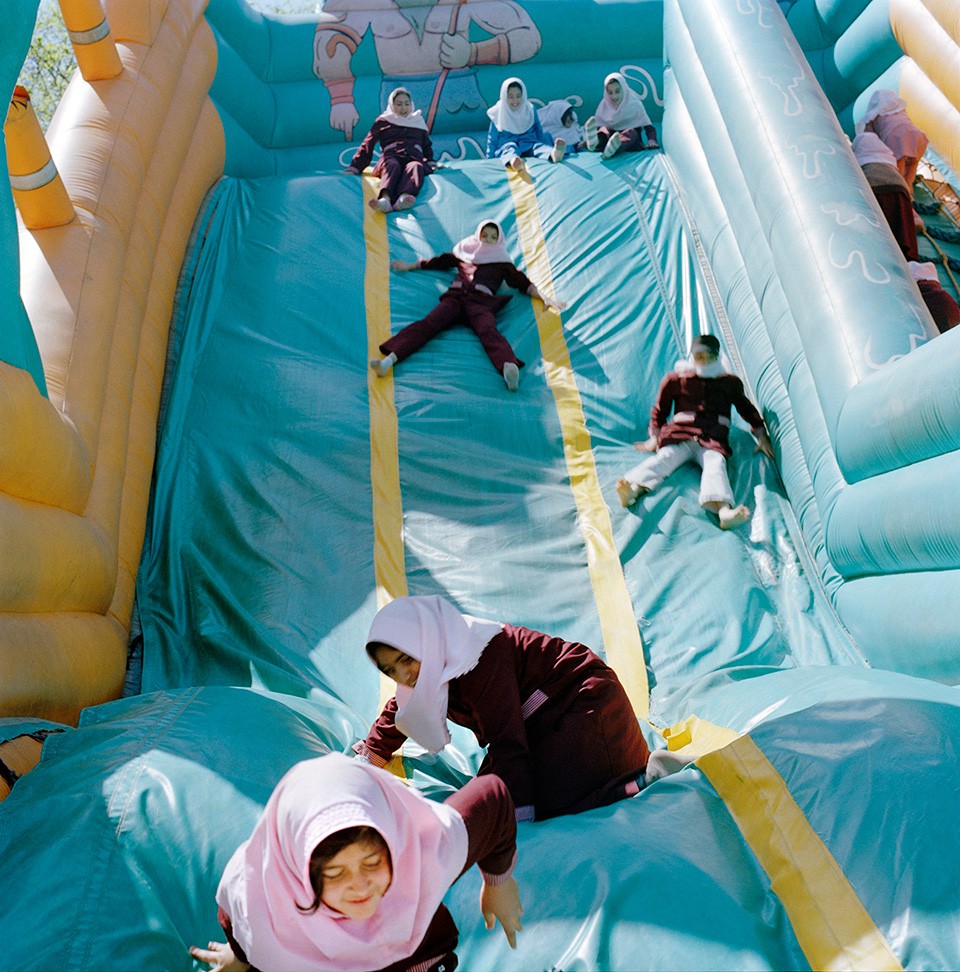
I know that almost every journalist would ask you if it was very hard to live in a different culture. But there must have been so many good and happy moments during your work in the East, too.
Yes, I don’t really think it’s very hard to work in this culture. Because they are incredibly hospitable. One of the things I noticed when I go east is that people become more and more friendly. They welcome you. And this idea of being a guest and the way they treat you is really amazing.
I always felt quite guilty about that because I knew that if these people went to England, they would not be treated in the same way.
I think, those moments when I came to people and shot them, and they said, “Stay for dinner”. They let me into their world. Those were very nice moments.
How did you find heroes for your photographs? It must not have been easy in a closed society.
It is always difficult. It’s a long process. Sometimes, it’s really by chance. I would meet people in the street and we would chat. Some people say that I should meet somebody, because she is so great, she is doing nice stuff. And I would meet this person. When I was working in Saudi Arabia, I did work with women. And you could only photograph women you knew and you were in a close relationship with.
How have you prepared for the project in Saudi Arabia?
Information was not easy to find, it’s a very closed society. Before I went, I tried to do some research on photographs, but I could not find anything. I was trying to find something that would show me the life inside. Almost nothing. So I had no idea what I would find. I think, you have to go there with the desire to do something, and also to be very open to see how it goes. So you follow the trail that comes along.
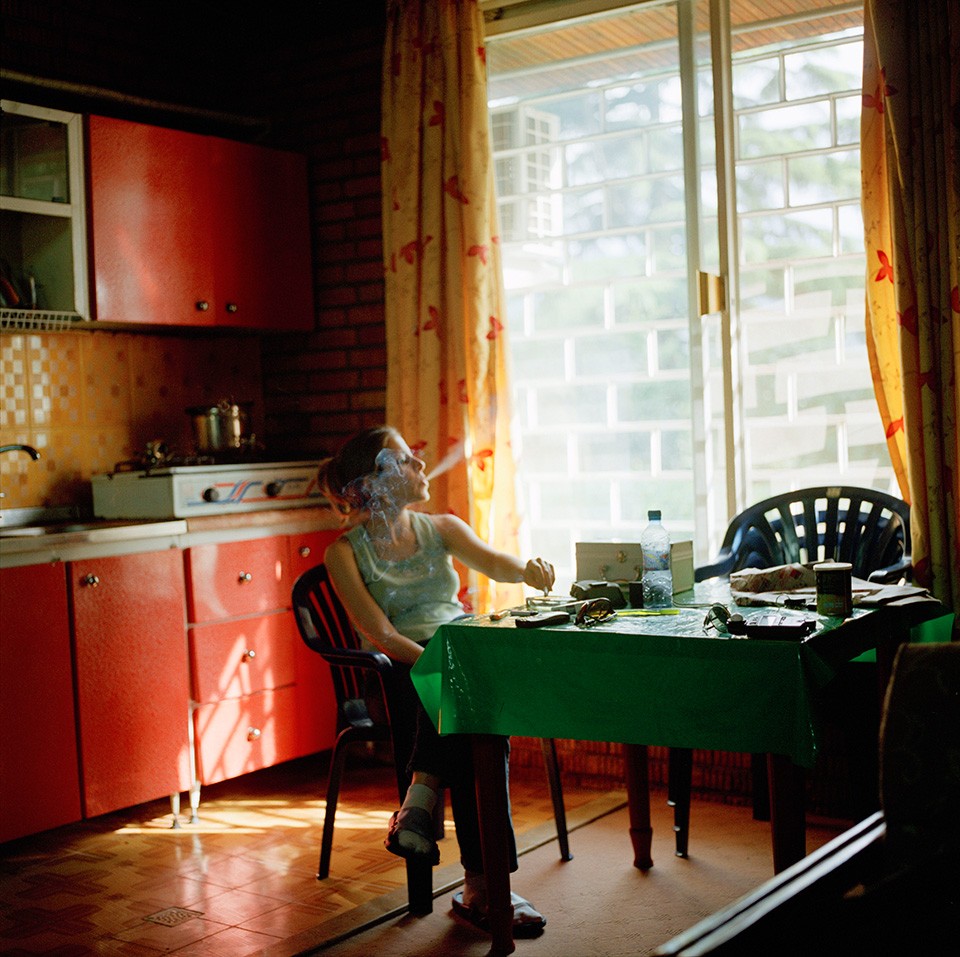
I know that a lot of female photographers there started to work for human rights projects. But you are not one of them. You are just a photographer.
I just like to do it on my own way. And I also try not to get too much into the issue. Because if you get involved too much in that, you are involved in someone’s politics. There are always a lot of politics. Whatever the organization is. When I went to Saudi Arabia, I was not going to judge. I am just going to see what I see. A lot of the experience I had was really different. So I also don’t want to say, “It’s this way, it’s that way”. Because there are a lot of different ways. So I try to keep the balance.
You don’t want to be subjective?
It’s not about subjectivity, because this experience causes the subjectivity. I am right inside these people’s lives and I have a relationship with them, I feel very affectionately for people because I spend a lot of time with them. So it’s not about judging them. I want people to see my experience. But not to judge.
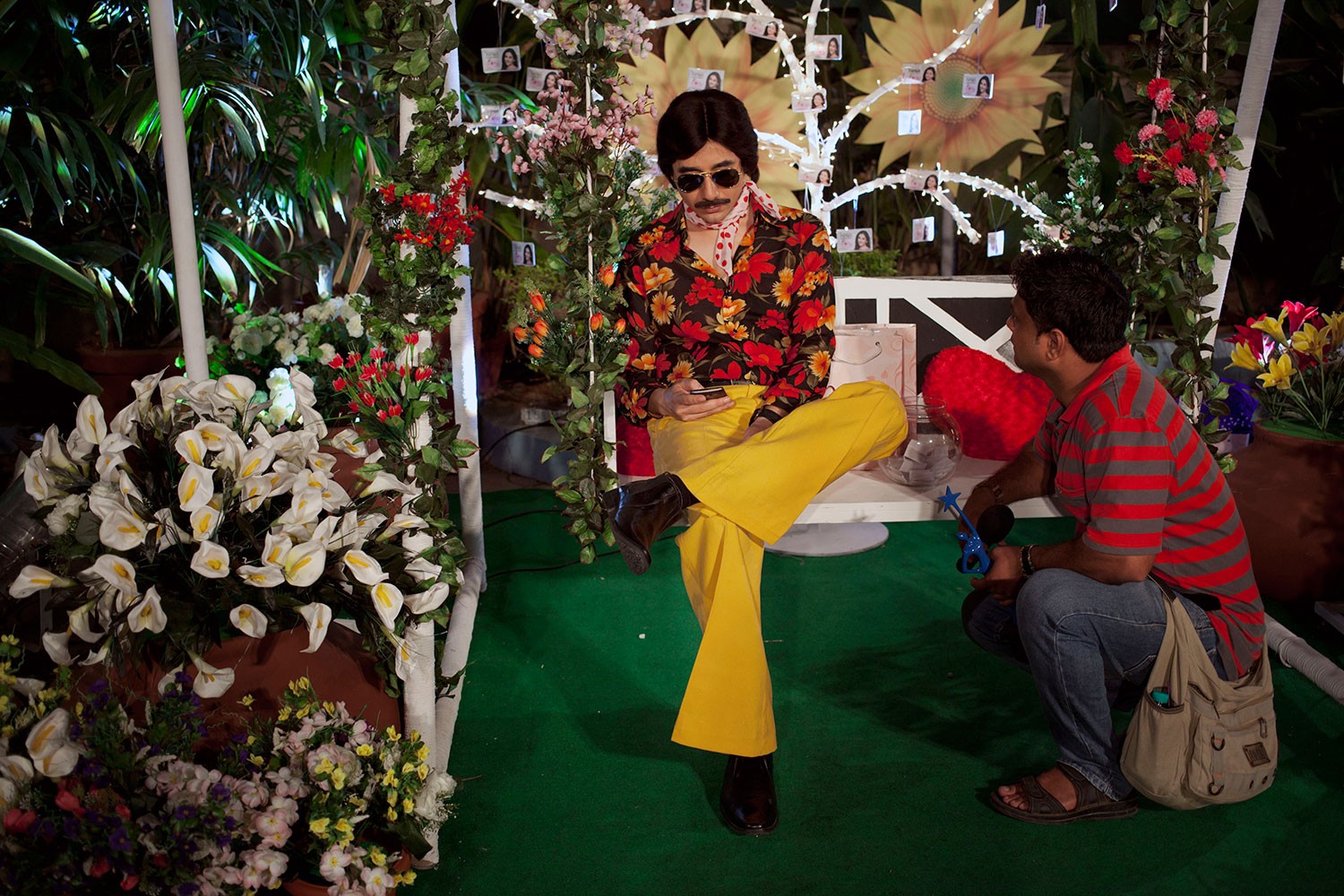
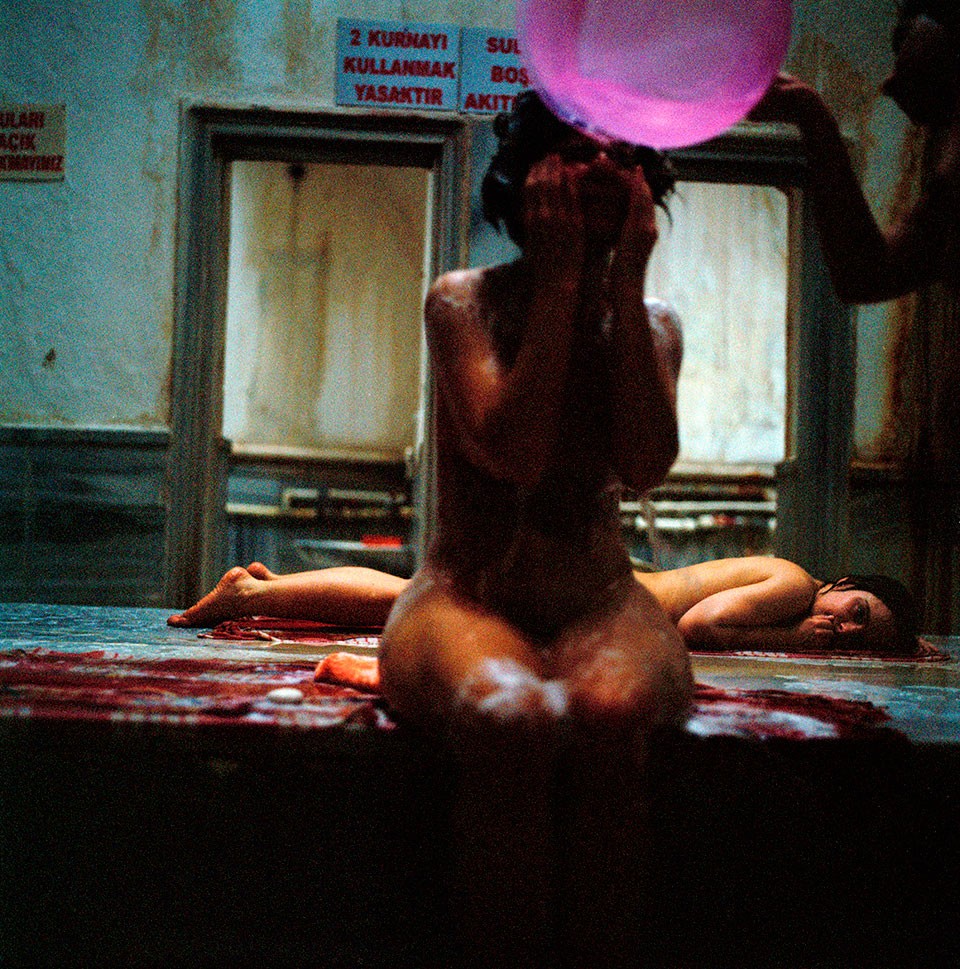
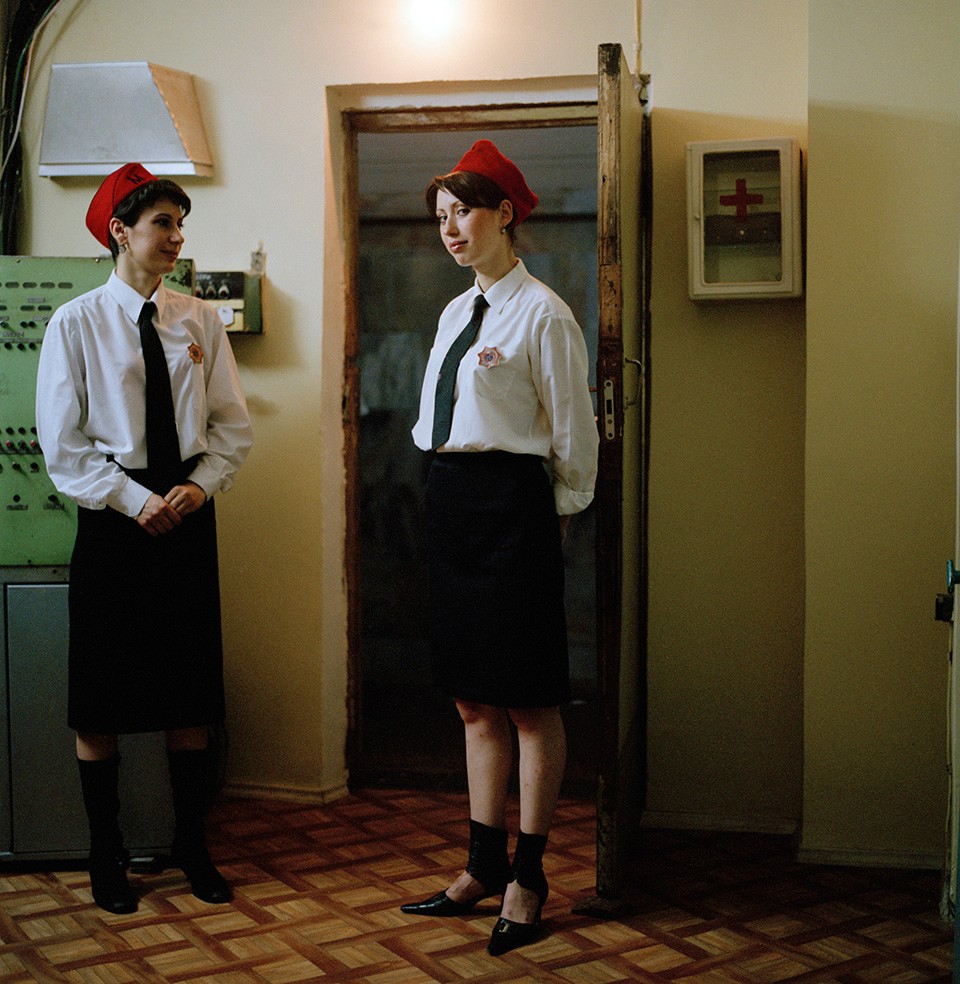
You recently published a book called Stranger, which is about a shipwreck survivor who comes back to Dubai after 50 years. What are you working on now?
I work with my husband in Scotland. It’s a project about very remote and empty land. And I started something in London. That is about places where I come from. Because I photographed a lot of other places, and now I decided to photograph places where I come from.
I saw that you opened a photo gallery.
It’s a beautiful thing to have a space where you can show your pictures in the way that you want them to be.
I saw several of your works from Crimea. When did you visit there?
It was the beginning of the summer 2014, right after the annexation. It was interesting. The idea of my project was to find three different people. One is Russian, one – Ukrainian, and one – Tatar.
I found the Russian family very easily, I found the Tatar family. And I also found the Ukrainian family, but they were so pro-Russian.
I photographed them, but we were still trying to find people who were real Ukrainians. And finally we found a priest of a Ukrainian church. It was very interesting. I did not know that part of the world very much. I tried to make it about people I met. Not about the political situation. I think, I would like to come again.
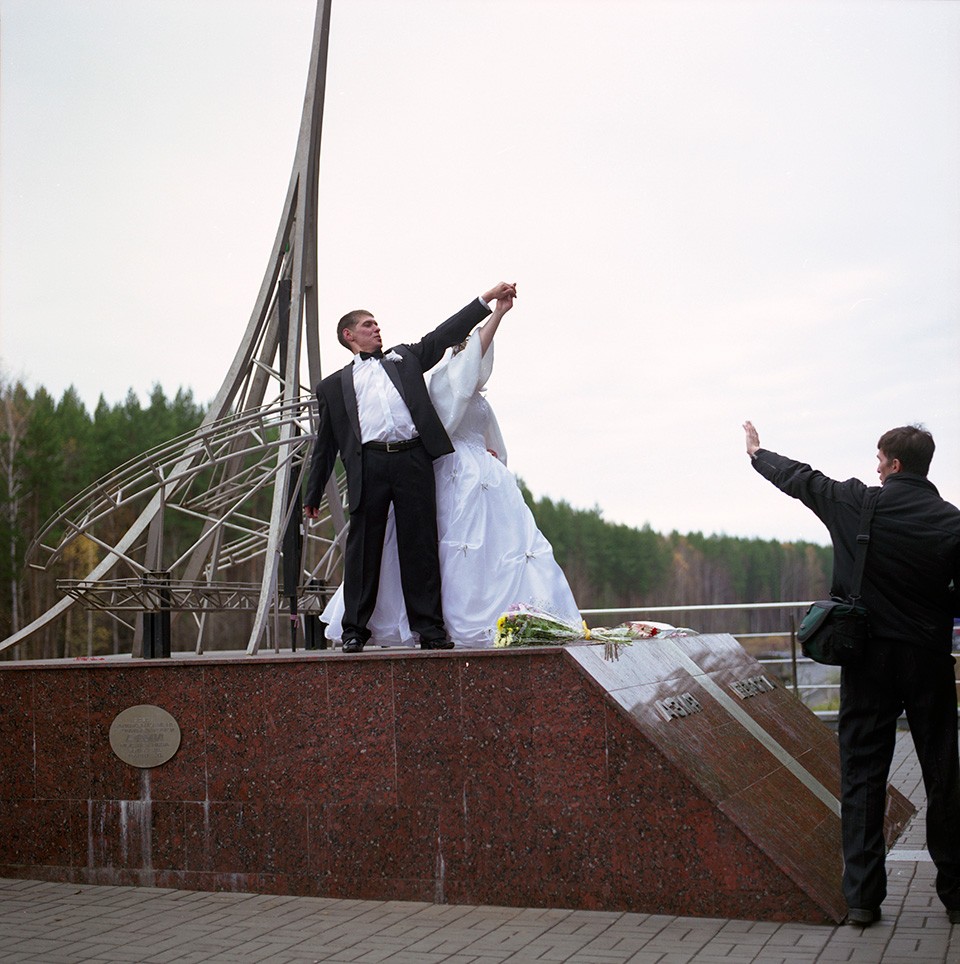
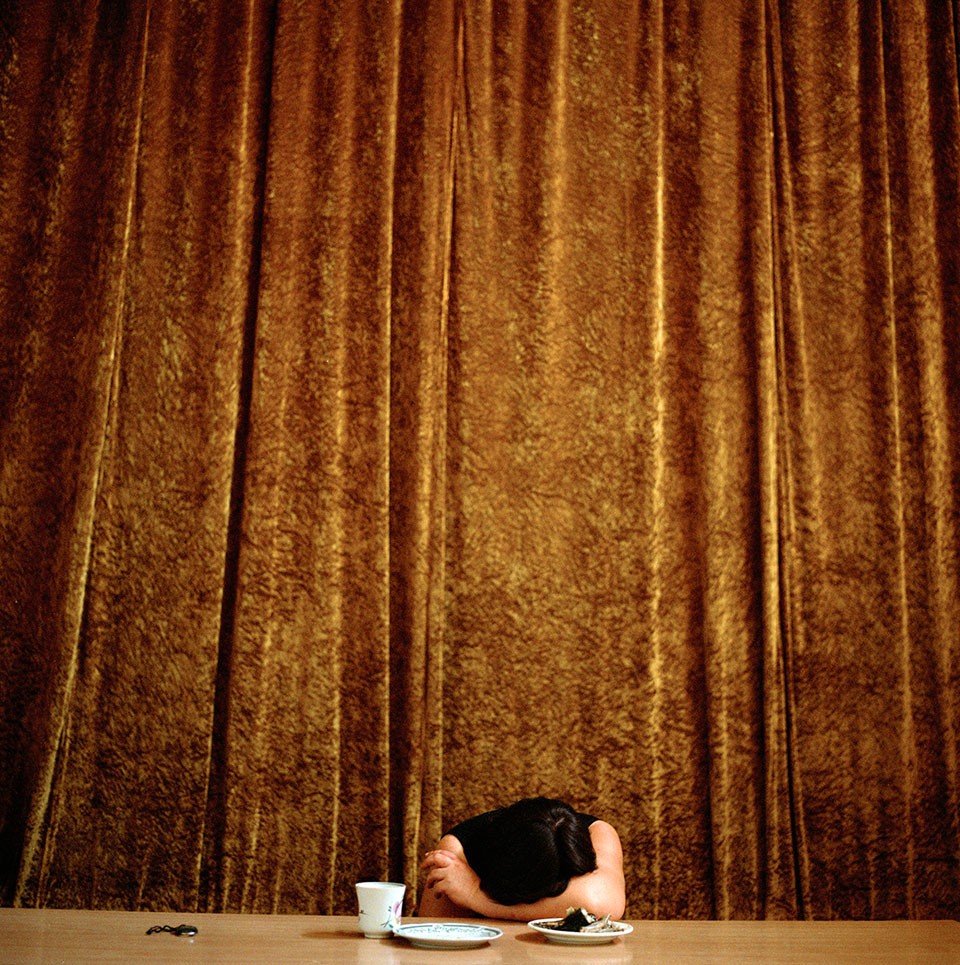
New and best
